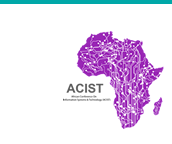Location
Harare, Zimbabwe and Virtual
Start Date
15-9-2023 11:30 AM
End Date
15-9-2023 12:00 PM
Description
The pressure for institutions to digitally transform has been building, and COVID-19 accelerated the transition in developing countries. The study evaluated the impact of digital transformation on Zimbabwean universities. The Microsoft digital transformation framework guided the study. Thematic analysis was used to extract meaning and generate themes from qualitative data from university ICT Directors. Results show that digital transformation positively impacted institutional growth and efficiency. Most universities invest in digital technology to increase service reliability and availability. Digital transformation teams were bolstered to support student processes and create personalised learning journeys. The digital transformation led to the adoption of several revenue collection streams, fostering institutional growth. Employees were equipped with skills to support digitisation. Implementation barriers include resistance to change, skills gaps, high costs, infrastructure and legacy systems. The government should upgrade the telecommunications infrastructure to support the digital trajectory and set policies to create a conducive environment for digital transformation.
The Impact of Digital Transformation on Institutional Growth. A Case of Zimbabwean Universities
Harare, Zimbabwe and Virtual
The pressure for institutions to digitally transform has been building, and COVID-19 accelerated the transition in developing countries. The study evaluated the impact of digital transformation on Zimbabwean universities. The Microsoft digital transformation framework guided the study. Thematic analysis was used to extract meaning and generate themes from qualitative data from university ICT Directors. Results show that digital transformation positively impacted institutional growth and efficiency. Most universities invest in digital technology to increase service reliability and availability. Digital transformation teams were bolstered to support student processes and create personalised learning journeys. The digital transformation led to the adoption of several revenue collection streams, fostering institutional growth. Employees were equipped with skills to support digitisation. Implementation barriers include resistance to change, skills gaps, high costs, infrastructure and legacy systems. The government should upgrade the telecommunications infrastructure to support the digital trajectory and set policies to create a conducive environment for digital transformation.



